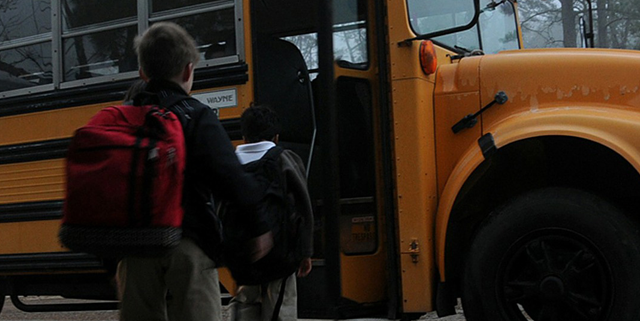Reducing Stress in Children’s Daily Lives
Reducing Stress in Children’s Daily Lives
Back-to-school season — we all know it well. And even though children and parents are often thankful for the familiar routine of the school day, the transition from summer back to school can create stress. Kids are just as susceptible to this stress as parents, but sometimes it harder to see in our children.
Children display stress much differently than an adult does as their communication skills are less developed and their coping mechanisms not established. Recognizing specific behaviors can help parents support their children through the stressful time and increase the child’s confidence in future stressful situations. The following are potential reactions children may have to stress:
• An increase in oppositional behavior
• Loss of interest in things the child normally enjoys
• Changes in eating patterns
• Regression in behaviors like clinginess or frequent crying
• An increase or decrease in energy levels not due to an illness
It is normal for children to go through phases where life may seem more difficult, providing some simple structure and guidance can assist the child in moving through the phase. Teaching your child stress management techniques can build self-esteem.
Communicate. Try to generate an open environment and create opportunities for your kids to express themselves. Parents can facilitate these openings by asking straightforward, non-threating questions about school, friends, classmates, and teachers. It can even be as simple as, “How are you feeling?”
Eat Healthy. We’re all on the run and once school starts, it is harder to keep track of everything our kids are eating. But a healthy body is one that is better equipped to withstand stress.
Encourage Physical Activity. They don’t have to be flying down the slopes or getting in aggressive activity, but regular exercise can help with health and, especially, with mental health. A daily walk or bike ride can help them sort out their thoughts- and feel better about themselves.
Establishing a Bedtime Routine. Work on getting your child in the routine of going to bed at ‘school time’ and waking up accordingly. The Mayo Clinic states that school-aged children need 10-11 hours of sleep, in comparison to adults who need 7-9 hours. A sleep deprived child will be a child who has less energy for school and activities and will need time to make-up for their sleep deprivation.
Listen. Learning to listen to your child and their needs is a skill developed throughout parenthood and is unique to each child. As a parent it is easy to give advice and not hear what your child may be saying about their perspective on what is happening in their daily life. Taking moments to hear your child’s perspective is a great way to understand what the sources of the stress may be and how you as a parent can best support and show your love for your child.



